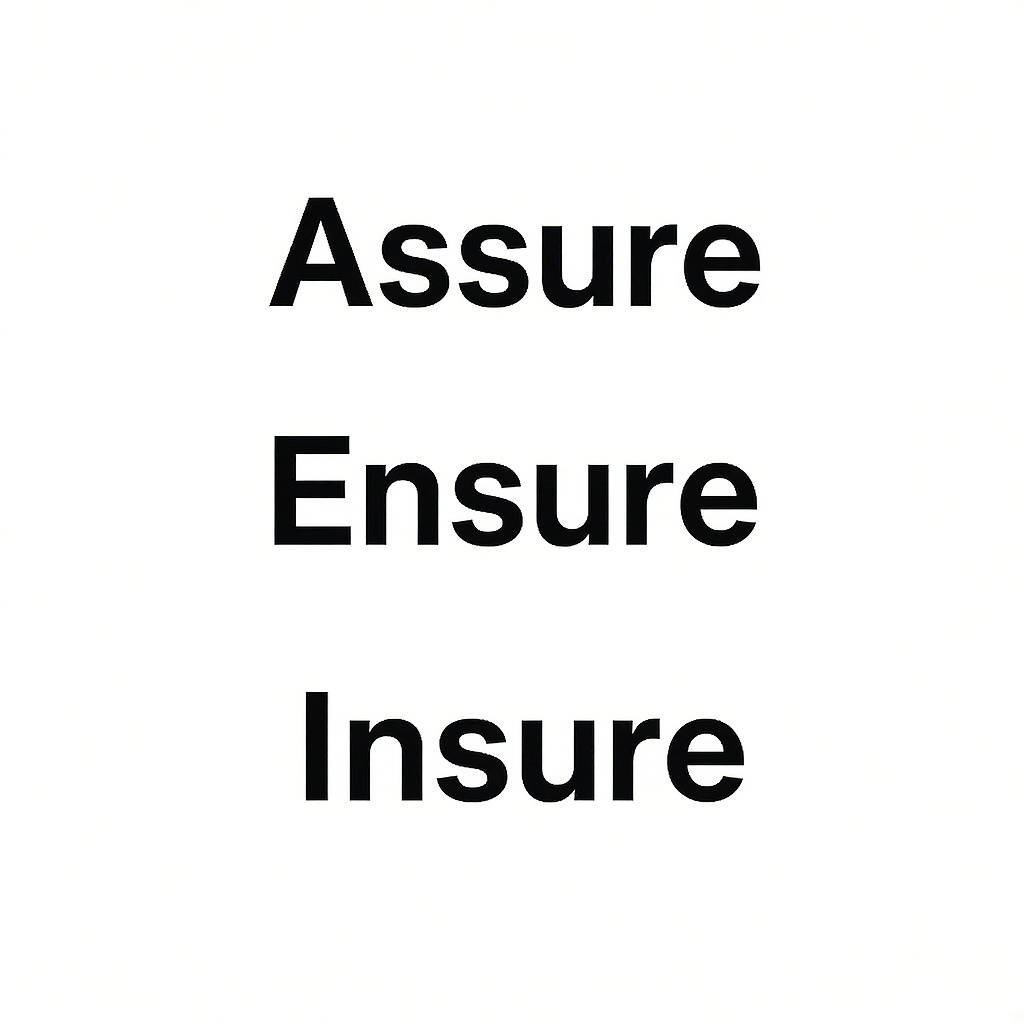"Assure" Vs "Ensure" Vs "Insure" - What's the Difference

English is full of tricky words that sound alike but mean different things. A perfect example is assure, ensure, and insure. They all share the same Latin root, which is why they look similar, but each one has its own meaning and usage.
Don’t worry—Midoo AI will walk you through the differences with simple explanations, examples, and memory tricks so you’ll never mix them up again.
What Does “Assure” Mean?
Assure means to remove doubt or give confidence to someone. You use it when you want to comfort, encourage, or guarantee something to a person.
👉 Think: assure = comfort or promise to someone.
Examples of “Assure”:
- I assure you that everything will be fine.
- She assured me that the package would arrive on time.
- The doctor assured him that the treatment was safe.
- I can assure you, this is the best choice.
- He assures his team before every game.
What Does “Ensure” Mean?
Ensure means to make certain that something will happen. It’s about guaranteeing an outcome, not comforting a person.
👉 Think: ensure = guarantee a result.
Examples of “Ensure”:
- Please ensure the door is locked before you leave.
- This policy will ensure customer safety.
- Studying daily will ensure better exam results.
- Good communication ensures fewer misunderstandings.
- The company takes steps to ensure product quality.
What Does “Insure” Mean?
Insure is used mainly in the financial sense—to buy or provide protection against loss or damage. It’s what you do with insurance companies.
👉 Think: insure = protect with insurance.
Examples of “Insure”:
- We need to insure the car before driving it.
- She insured her house against fire.
- You should insure valuable items like jewelry.
- The company insures its workers against accidents.
- He forgot to insure his trip and lost money.
Quick Comparison
- Assure → remove doubt / comfort someone.
- Ensure → guarantee something happens.
- Insure → protect financially with insurance.
Comparison Table
| Word | Focus | Typical Use | Example |
|---|---|---|---|
| Assure | People | Comfort or remove doubt | The teacher assured the students. |
| Ensure | Actions/Results | Guarantee something happens | Please ensure the door is closed. |
| Insure | Finance/Protection | Provide insurance | You should insure your car. |
Memory Tricks
- Assure = A for Audience (you talk to people).
- Ensure = E for Event (you guarantee a result).
- Insure = I for Insurance (money protection).
Common Mistakes
❌ I insured her that I’d arrive on time. ✔️ I assured her that I’d arrive on time.
❌ This will assure safety. ✔️ This will ensure safety.
❌ The company ensures your car against theft. ✔️ The company insures your car against theft.
FAQs
Can I use “assure” and “ensure” interchangeably?
No. “Assure” is directed at people (to comfort them), while “ensure” is about results.
Is “insure” only about money?
Yes, it’s used in the context of insurance, like cars, houses, or health.
Which is most formal: assure, ensure, or insure?
“Ensure” is often used in professional and formal writing. “Assure” is more personal. “Insure” is financial/legal.
Is “assure” always about promises?
Not exactly—it’s more about removing someone’s doubts, which can include promises.
Do British and American English use them differently?
Slightly. In American English, “insure” is always financial. In British English, sometimes “insure” and “ensure” overlap, but the distinction is still useful.
Final Thoughts
The three words may look alike, but their meanings are clear once you know the trick:
- Assure = comfort people.
- Ensure = guarantee results.
- Insure = protect with insurance.
Next time you write, just remember A = Audience, E = Event, I = Insurance. That little shortcut will help you pick the right one instantly. Find more confused words here.